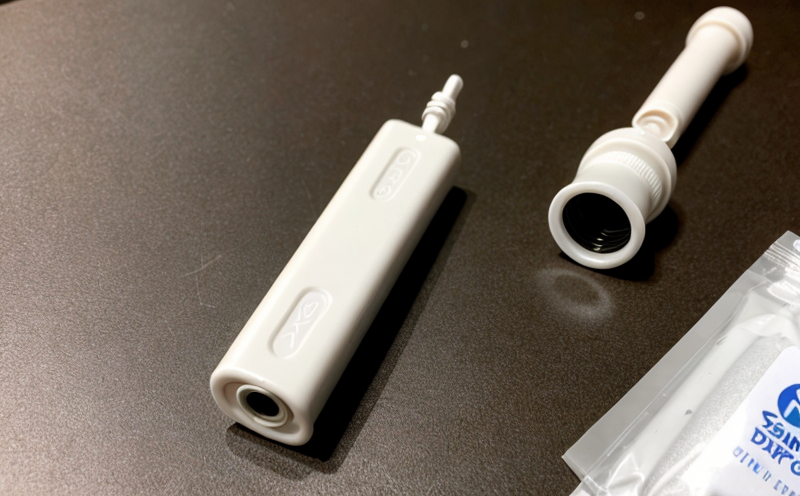ISO 10993-18 Chemical Characterization of Disposable Device Materials
The ISO 10993-18 standard specifies requirements for the chemical characterization of materials used in single-use medical devices. This service ensures that manufacturers can demonstrate compliance with international standards, thereby enhancing trust and ensuring safety in healthcare products.
Compliance with this standard is crucial as it helps to identify potential leachable substances that could be transferred from device materials into tissues during use. The process involves a series of tests aimed at evaluating the chemical profile of materials used in single-use devices, including plastics, metals, and other biocompatible materials.
The ISO 10993-18 protocol is designed to cover various aspects such as extraction methods, leaching studies, and evaluation of potential contaminants. This comprehensive approach helps manufacturers to identify and mitigate risks early in the product development process. The service provided here ensures that all chemical characterization activities are conducted according to the latest ISO guidelines.
Our team of experts uses state-of-the-art equipment and methods to conduct these tests, ensuring accuracy and reliability. We employ rigorous quality control measures throughout the testing process to provide clients with confidence in the results they receive. This includes detailed reporting that outlines all test parameters, extraction conditions, and analytical techniques used.
Understanding the chemical composition of materials is essential for evaluating their biocompatibility, especially when it comes to single-use devices which are intended for short-term use within the human body. By adhering to ISO 10993-18 standards during development stages, manufacturers can reduce the risk of adverse reactions and ensure product safety.
Our service is particularly beneficial for companies involved in medical device manufacturing who need to meet regulatory requirements set forth by various jurisdictions around the world. It provides them with reliable data that supports their compliance efforts while also enhancing brand reputation through adherence to high standards.
Why It Matters
The importance of ISO 10993-18 cannot be overstated, especially for companies involved in the medical device industry. Compliance with these standards demonstrates a commitment to patient safety and regulatory compliance, which can significantly impact brand reputation and market success.
By ensuring that materials used in single-use devices undergo thorough chemical characterization according to ISO 10993-18 guidelines, manufacturers not only meet legal requirements but also enhance the trustworthiness of their products. This is particularly important given the increasing focus on patient safety and quality assurance across global markets.
The rigorous nature of this standard helps identify any potentially harmful substances that may be released into body tissues during use. Early detection allows manufacturers to take corrective actions if necessary, thereby preventing costly recalls later down the line. Additionally, compliance with ISO 10993-18 can help secure market access in countries where stringent regulatory frameworks are enforced.
In conclusion, adherence to these standards is vital for maintaining high-quality standards within the medical device sector and fostering consumer confidence in healthcare products.
Applied Standards
| Standard | Description |
|---|---|
| ISO 10993-18:2020 | This document specifies requirements for the chemical characterization of materials used in single-use medical devices. |
International Acceptance and Recognition
- The United States Food and Drug Administration (FDA) recognizes ISO standards as equivalent to its own regulatory requirements.
- The European Union harmonizes with ISO standards for medical devices, making compliance easier for international manufacturers.
- Many countries around the world have adopted ISO 10993-18 into their national regulations, ensuring widespread acceptance of this standard globally.





